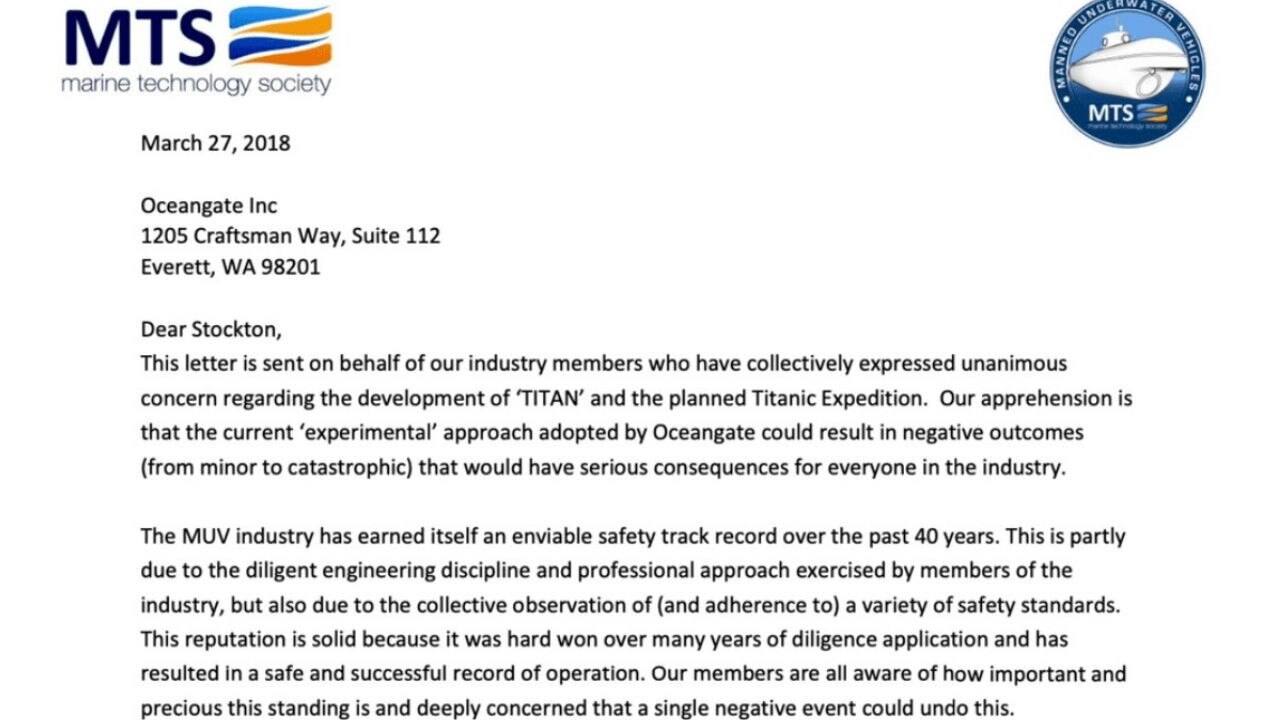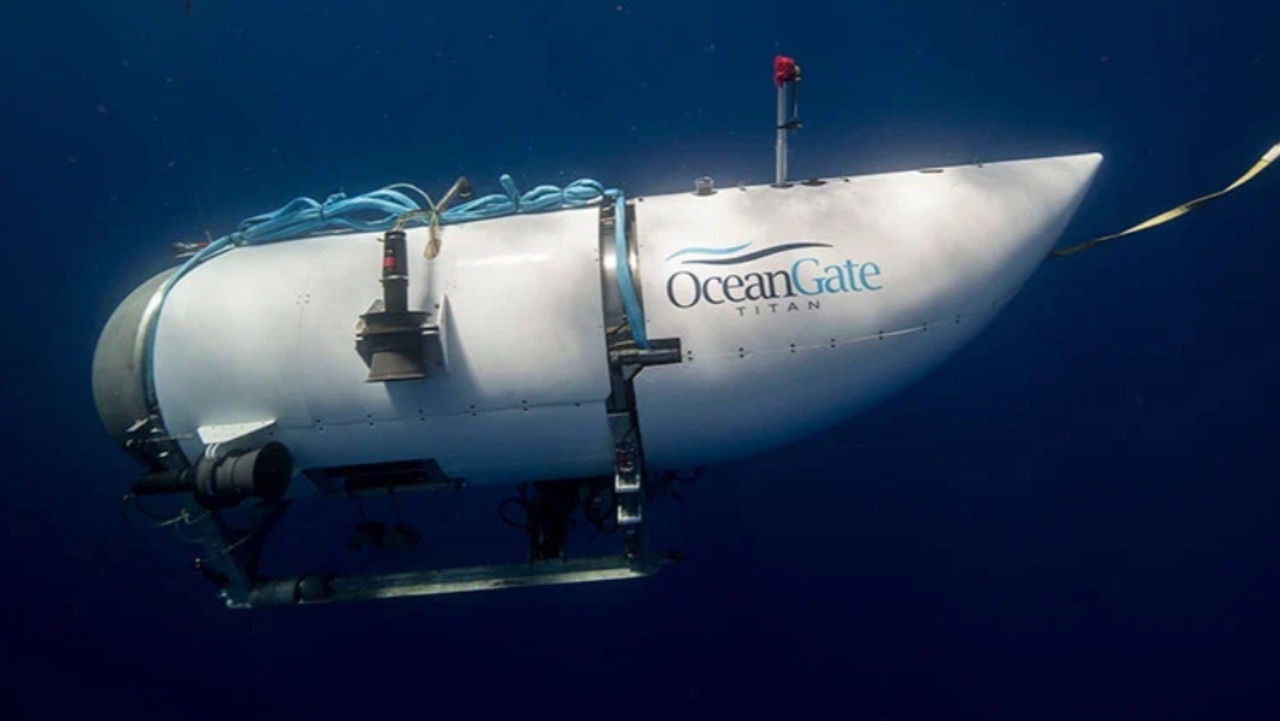‘Catastrophic’: Industry experts warning to CEO five years before sub vanished
Years before OceanGate’s submersible vanished, industry experts penned a letter to the CEO warning him about the potential for catastrophic outcomes.

A letter from industry experts was sent to OceanGate’s CEO five years ago expressing concerns about the development of the now-missing submersible.
OceanGate Expeditions’ submersible Titan vanished off the coast of Newfoundland, Canada about an hour and 45 minutes into its dive to visit the wreck of the Titanic with five people aboard, including company chief executive Stockton Rush.
A huge and complex search is underway for the sub, which has less than 40 hours of air left.
It has now been revealed the Manned Underwater Vehicles Committee of the Marine Technology Society wrote to Mr Rush on behalf of industry members who had expressed “unanimous concern” about Titan and its planned expedition to the Titanic wreck before expeditions began in March 2018.
Titan did not reach the Titanic wreck for the first time until 2021.
The letter, obtained by The New York Times, warned OceanGate’s “experimental approach” could have possible “catastrophic” outcomes.

It said the manned underwater vehicles industry had earned an “enviable safety track record over the past 40 years” and expressed concern for its reputation.
“Our members are all aware of how important and precious this standing is and deeply concerned that a single negative event could undo this,” the letter said.
The New York-based publication reported the letter was signed by more than three dozen people, including oceanographers, submersible company executives and deep-sea explorers.
The letter also said marketing of the Titan had been “misleading to the public”.
The signatories said OceanGate had claimed the sub would meet or exceed accredited registrar DNV-GL’s safety standards, when the company had no plans to have the sub assessed by the agency.
It requested OceanGate have a prototype testing program reviewed and witnessed by DNV-GL or ABS, another independent certification company.

Will Kohnen, chairman of the MUV committee, told The New York Times that Mr Rush called him after reading the letter and told him that industry regulations were stifling innovation.
A blog post by OceanGate titled “Why Isn’t Titan Classed?” in 2019 also argued “innovation often falls outside of the existing industry paradigm”.
The New York Times reported a spokesman for OceanGate declined to comment on the 2018 letter.

CBS News correspondent David Pogue was invited on the Titan for a dive to the Titanic wreck in July last year.
He was required to sign a form that read: “This experimental vessel has not been approved or certified by any regulatory body, and could result in physical injury, emotional trauma, or death.”
Pogue was seen in disbelief in his television report as Mr Rush showed him the game controller that “runs the whole thing”.

Mr Rush assured Pogue the pressure vessel was safe and unlike other aspects of the operation, was “not MacGyver at all”.
He said they had worked with Boeing, NASA and the University of Washington on that part.
“Everything else can fail, your thrusters can go, your lights can go. You’re still going to be safe,” Mr Rush told Pogue.
When Titan went missing on Sunday, local time it was carrying three fee-paying passengers, including British billionaire Hamish Harding, Pakistani tycoon Shahzada Dawood and Dawood’s son Suleman.
OceanGate Expeditions charges $US250,000 (almost $370,000) for a seat on the 6.5-metre craft.
Mr Rush and French submarine operator Paul-Henri Nargeolet, nicknamed “Mr Titanic” for his frequent dives at the site, are also aboard.






